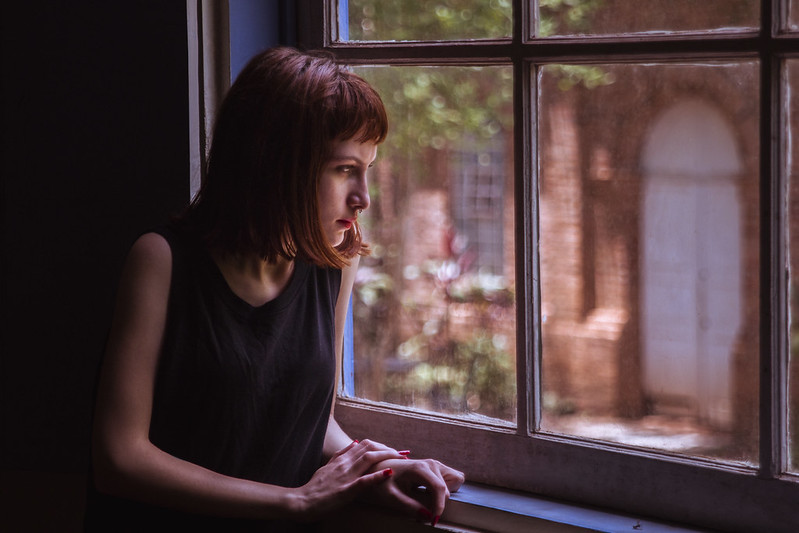Trigger warning: This article contains references to domestic violence.
Women are at greater risk from domestic violence while self-isolating because of the coronavirus, and advocates say additional resources for national support helplines are urgently needed.
Domestic Violence NSW has appealed to the government after warnings by domestic violence service providers of a potential rise in domestic violence incidents as Australia contends with the COVID-19 pandemic.
As confirmed cases in Australia continue to rise, those who have become infected with the disease or come into contact with someone who has are required to self-isolate at home for 14 days.
“We have asked the government for more resources for the 1800RESPECT counselling helpline as women facing violence may not be able to leave their homes during the pandemic,” Renata Field, a Voices for Change Coordinator for Domestic Violence NSW told Hatch.
“We are yet to receive a response.”
Authorities are also advising the public to practice social distancing to curb the spread of the virus throughout the community.
Violence prevention advocates say that due to home isolation, women at risk of, or currently experiencing domestic violence will find it harder to access support.
The concerns come as other countries sent into lockdown have seen increasing instances of domestic violence.
“There has been a large spike of incidents in other countries, for example, Wuhan (the central Chinese province where the coronavirus is understood to have originated) has seen their domestic violence reporting rates triple since January,” Ms Field said.
“The evidence is concerning as, in Australia, the NSW Bureau of Crime Statistics and Research (BOSCAR) has reported a 5 per cent increase in domestic violence cases reported in the 12 months to March 2020.”
“Emergency accommodation providers are keeping their doors open but the government are looking into alternative solutions for the co-occurrence of someone experiencing domestic violence and self-isolating due to coronavirus.”
Rachael Natoli, the founder of the Lokahi Foundation, a Sydney-based domestic violence charity, agrees that alternatives need to be provided for women who might not be able to access the same level of support that they had before they had to self-isolate.
“Women won’t be able to access support as easily because if you’re self-isolating at home with your perpetrator, you can’t call a support service,” she said.
“Even if you have an existing support service you might not be able to contact them as much…you might be able to send an odd text message or an odd email so you feel like you’ve still got some level of support.”
“We have to offer more support workers, even if they can’t do face to face, given the current situation, even if we offer it over the phone, via email or text message, at least, they are still there,” she said.
Ms Natoli said funding for more support workers and accommodation is required for a system that is already strained and feeling the effects of the devastating bushfire season.
“All support services are already under pressure. They were put under more pressure from the bushfires, then the floods. Now this is even more that they are going to have to cope with.
“If the government don’t start putting some real funding into it, we are going to get to a stage that the support workers aren’t going to be able to keep going at the rate that they are going,” Ms Natoli said.
“They need to make more crisis accommodation available so that women can flee during an isolation period or even worse if they have been diagnosed so they have somewhere to go.”
Ms Natoli commended the government for its $2.4 billion health plan to fight COVID-19 but said other frontline services will need resources during the pandemic.
“The government has to focus on the countries current issues: domestic violence is a national epidemic. The rates are appalling… that’s not going to stop with coronavirus, it’s not going to go away.
“The only possible thing is that it will get worse so the government has to fund those services even more then they are already.”
Nine women have been killed by violence in Australia this year, as reported by the Counting Dead Women project, reflecting the national average that one woman per week is killed by her current or former partner.

In a statement to SBS News, Minister for Women Marise Payne said ensuring the safety of women and children from violence is “critical each and every single day” and that “does not change in the current context of COVID-19”.
“It is crucial at this difficult time that people who need family violence support services know those services are there and are able to support them,” she said.
If you or someone you know is impacted by family or domestic violence, call 1800RESPECT on 1800 737 732 or visit 1800RESPECT.org.au. In an emergency, call 000.
Main image creative commons picture Flickr/Edward Zulawski


